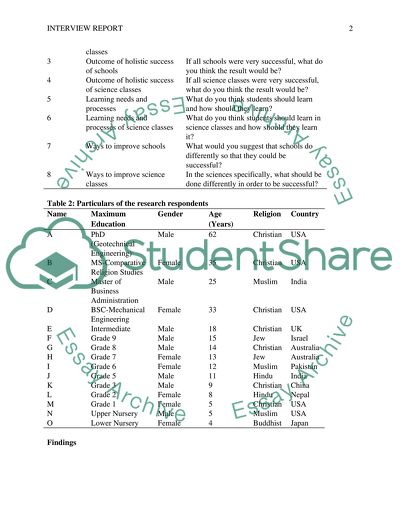Cite this document
(“Interview report about education Research Paper”, n.d.)
Retrieved de https://studentshare.org/education/1401276-interview-for-ed
Retrieved de https://studentshare.org/education/1401276-interview-for-ed
(Interview Report about Education Research Paper)
https://studentshare.org/education/1401276-interview-for-ed.
https://studentshare.org/education/1401276-interview-for-ed.
“Interview Report about Education Research Paper”, n.d. https://studentshare.org/education/1401276-interview-for-ed.


